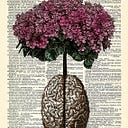A Muslim’s take on Confederate statues
Any diligent Muslim who wishes to protect his religion from the kind of vulgar reductionism and fear-mongering charicatures so frequently encountered in today’s popular discourse should pay attention to the debate surrounding Confederate statues, because it has a direct bearing on the attitude modern society should take towards the prophet Mohammad, and therefore on the relevance and acceptability of Islam itself.
That a statue of a Confederate leader provokes such controversy today is attributable to three mutually exclusive issues. The first is whether we should honor the memory of a historical figure who rebelled against our national government. The second is whether we should honor the memory of a historical figure who owned slaves and/or perpetuated the practice of slavery. The third whether we should honor the memory of a historical figure who harbored racist beliefs.
Ask a social activitist about their opposition to Confederate monuments, and one of these three concerns will probably be mentioned, with all the righteous indignation typical of their political discourse.
As some readers may already be anticipating, the subject which is most relevant to the Muslim is the question of whether it’s proper to honor the memory of a historical figure who owned slaves. After all, the prophet Mohammad was not only a slave owner himself, but made accomodations for the institution of slavery in the social and political order mandated by his divine revelation.
In short: if the memory of Confederate leaders is tarnished by their slave-owning status, then the memory of Mohammad is also threatened. That being said, there are several conceivable objections to this idea, which argue against such an equivalence between Mohammad and a Confederate leader is invalid.
The first is that Mohammad wasn’t subjugating a specific kind of people to slavery. In Arabia during the first millennium, slavery was a fate which could equally befall any tribe which happened to be conquered by another. However, it’s clear that the reprehensibility of owning human beings should apply equally whether it has a racial component or not.
The second is that the content of Mohammad’s divine inspiration mandated a merciful attitude towards slaves, and implied that the movement away from slavery was a virtue. For example, the expiation of guilt or of misconduct is frequently described as the freeing of a slave. But certainly slavery constitutes such a grave departure from acceptable behavior that these injunctions, in comparison to a strict prohibition, can only be seen as lacking.
The third is that Mohammad lived in an era when opposition to slavery wasn’t a clear social or political option, so that the Confederate leader’s decision to support slavery, which was made in the presence of an active abolitionist movement, becomes an altogether different thing. And yet the ubiquity of slavery in the deep south and its connection to the economic conditions there make it so that, practically speaking, abolitionism wasn’t a part of the social fabric at all.
Having addressed these objections, we’re led to the conclusion that to question the legacy of slave-holding Americans — whether it be a Confederate leader or our national hero George Washington — is to admit that the legacy of Mohammad should also be seriously reevaluated.
At this point, why doesn’t the Muslim, particularly a progressive-minded one, simply admit that there’s something problematic about the fact that Mohammad owned slaves? Simply put, because this would be a gross violation of one of the central tenets of Islam, which dictates that in the face of contemporary ethics and humanism and despite all the apparent difficulties involved, the conduct and philosophy exemplified in this 7th century Arabian man remains the supreme prototype of lived experience, and should be honored and esteemed above anyone else’s.
That the absurdity of this idea is not a fault, but rather a leap of faith which strengthens the Muslim’s conviction, will be left for another article.
In the meantime, finding himself beholden to a compelling equivalence between the slave-holding status of Confederate leaders and of the prophet Mohammad, and unable to relinquish his unflinching regard for the latter, the Muslim is lead to the conclusion that the memory of Confederate leaders should not be erased for their having owned slaves, nor for their perpetuation of slavery as an institution.
The spirit of progressivism, which has inspired such commendable social and political movements as feminism and LGBTQ activism, cannot be used as an interpretive structure to assess the moral status of historical figures. That is because the movement of this spirit is not so much the discovery or gradual accumulation moral truths, but rather, an ongoing disclosure of moral horizons, such that numerous issues (tolerance for women’s participation in the social order, acceptance of homosexual encounters, etc) become inducted into the calculus of one’s moral status, whereas it had previously been irrelevant.
In other words: that Mohammad owned slaves doesn’t factor into his moral status as a man living in 7th centuria Arabia. Far from being some kind of apologetics for slavery, or repudiation of the idea that slavery is “wrong everywhere and at every time”, this is simply an acknowledgement that morality is socially-constructed, and as such, contingent on the conditions of a given society — otherwise, we’re led to the soul-crushing conclusion that humanity, for an overwhelming majority of its history, has been quite evil indeed when compared to contemporary standards of secular humanism.
It suffices to bring up a quick example, which is that anyone using a smartphone which was assembled under morally questionable conditions, typically overseas, and who enjoys the occasional animal product, could very well be considered immoral from a future perspective which scrutinizes these activities, and yet this doesn’t threaten the moral status of the individual living today.
But God knows best.
